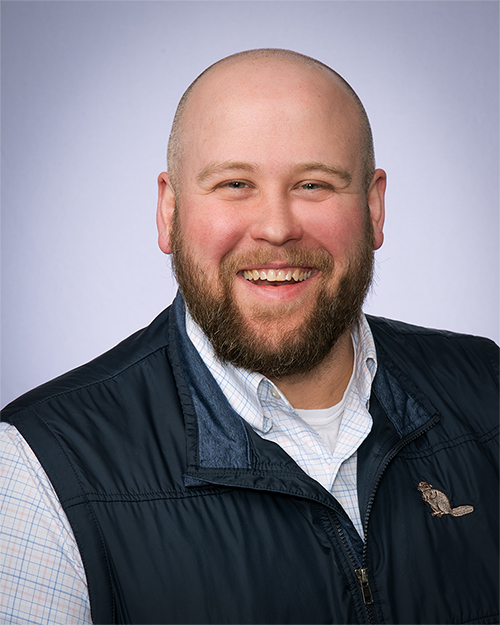Treat your emotional health as you would your physical health

Here's how to start managing your emotional well-being.
Taking care of your physical health can be straightforward — eating, exercising, sleeping, flossing, bathing, etc.
But what about your emotional health?
“Acknowledging your emotions and finding space for them is a good first step,” says Josh Ostrue, DO, a family medicine physician at PeaceHealth in Vancouver, Washington. “On one hand, you don’t want to dismiss your emotions, but you also don’t want to make them bigger than they are. Finding a balance allows you to be more present and to find more harmony in life.”
What emotions do
Emotions can sometimes be difficult to understand, but their value is clear. Those who study the subject say our lives would be dangerous and dull without emotions. The speaker in a TED talk on the science of emotions says “we have feelings to tell us what supports or detracts from our survival.”
Fear and disgust, for example, can subconsciously warn us to avoid things like snakes or moldy food. And joy and surprise can draw us to things that help us thrive, like inspirational hobbies or warm friends.
You can sense many emotions physically. A knot in your stomach, a lump in your throat, a higher heart rate and faster breathing are just a few examples of how feelings can show up.
Underlying emotions can help you stay motivated and take action. You might also do a “gut check” when making a decision.
And emotions can be especially vital for connecting with others. That’s because humans have a deep need to be part of something bigger than us. We need others to help us in the world and we need to be needed. Emotions can be mirrored or influenced by others. Learn more about research behind connecting with others.
Read additional information about the benefits of emotion.
Assess your current emotional state
As a starting point with your emotional health, it helps to know your baseline. What’s typical for you on any given day?
If you’re going through a difficult time right now, consider reaching out for help — especially if you’ve lost someone or something important to you.
“A deep or sudden loss can be like a wound or injury. Just as if you were physically hurt, be gentle with, and kind to yourself until healing happens. And that can take time,” says Dr. Ostrue.
You don’t have to face grief or severe emotional pain alone. Ask your primary care provider for advice or a referral. Many clinics have started integrating mental health into the services they offer so you might find help in the same office where you get other care.
You might seek counseling at your house of worship or an employee assistance program at work. You could also think about joining a local support group or grief class.
Everyday emotional health
You don't need to be going through an exceptionally hard time to be mindful of your emotional health. If you’re looking for ways to handle everyday ups and downs, here are some things that might help:
- Meet your physical needs, especially for:
- Restful sleep
- Exercise, play or meaningful movement (e.g., working in the yard, cleaning house)
- Fresh air, sunshine and time in nature
- A nutritious daily diet, including
- Fiber-rich vegetables and fruit
- Fermented foods (yogurt, kimchi, sauerkraut, kombucha)
- Less or no: red meat, sugar and fried or ultra-processed food
- Spend time on your own:
- Breathe deeply. When you feel like you can’t calm down, breath exercises can cause part of your nervous system to release hormones that tell your body to relax.
- Process uncomfortable feelings, when you’re ready. You can do this on your own through journaling or with a friend or a counselor.
- Explore ways to check on your emotional health. Blood pressure and other aspects of your health can be measured outwardly. It's not so easy to measure emotions. But you can find various tools to help you identify your feelings and sense of well-being.
- Learn more about emotions. You can find a lot of interesting research, books, blog posts, podcasts, graphics and videos on various aspects of the subject. Start with your local library and reputable websites.
- Get help from a trained professional:
- Ask your PCP about options if you’re feeling overwhelmed.
- Schedule time with a counselor you’re comfortable with. You might have regular sessions every few weeks, months or years — depending on your personal needs.
- If you have gone through traumatic experiences, have a provider help you safely address and recover from those painful memories.
- Connect with others:
- Call or meet with a trusted friend or family member. Making regular connections can make you (and them) less lonely.
- Send a card or small gift to someone who could use a mood boost. Cheering someone else up can also cheer you.
- Find ways to volunteer in your community. Giving back or doing for others can make you feel good about yourself.
- Spend time with a fish, bird or other animal. This can help you feel more emotionally balanced. If you don’t have your own, ask a friend or neighbor about walking with them and their dog. If you’re thinking about an emotional support animal, talk to a therapist about the pros and cons. And get a clear understanding of the rules that apply where you live.
Make it a habit to see how you’re feeling every day. Knowing your current mood can help you understand what’s behind an emotion and if you need to do something about it. It can also give you insight into patterns or things that trigger difficult feelings.
“Managing our emotions is something a lot of us learn later in life and something many of us continue to work at. It takes a lot of practice,” says Dr. Ostrue. “But learning to listen and respond to your emotions is well worth the effort.”






